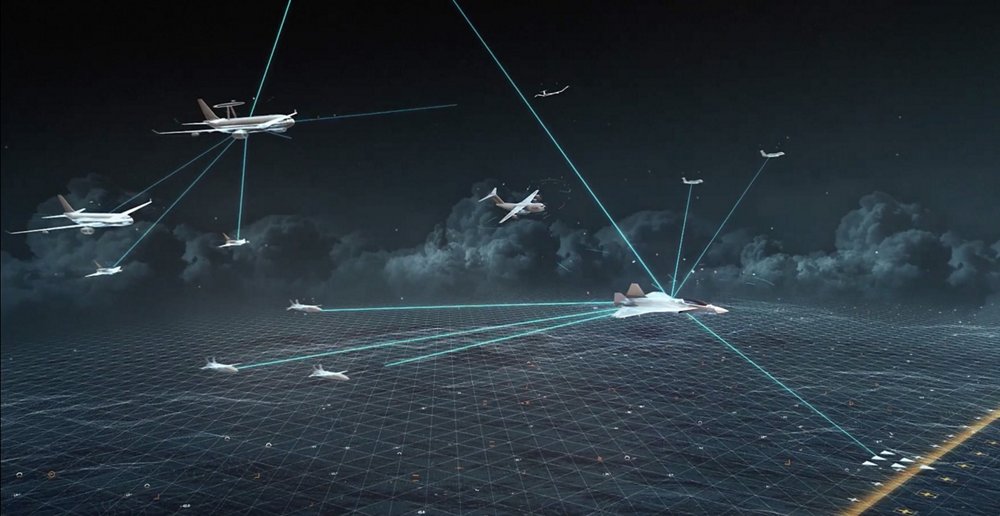By Pierre Tran
Paris – A European project to build a future combat air system (FCAS) was as significant as the launch of Airbus, builder of commercial airliners some 30 years ago, a senior aerospace executive said Jan. 5.
“We are building in the domain of the protection of air and space over Europe, something along the lines of what was built for commercial aviation by Airbus 30 years ago,” Guillaume Faury, chairman of GIFAS, the French aerospace trade association, said at the new year press conference.
“That is the scale needed to resolve the problem,” he said.
Faury is also chief executive of Airbus, based in Toulouse, southwest France. Airbus, which builds the A320 jetliner, is the European rival to Boeing, U.S. builder of the B737 MAX single-aisle airliner.
Airbus and Dassault Aviation signed in December a contract worth €3.2 billion ($3.4 billion) for work on Phase 1B of the technology demonstrator for FCAS. A new generation fighter is at the heart of FCAS, estimated to be worth €80 billion-€100 billion and backed by France, Germany and Spain.
That contract was signed with the French procurement office, Direction Générale de l’Armement (DGA), after months of tough negotiations between the Airbus Defence and Space unit and Dassault, respectively the German and French industrial partners.
Indra of Spain and Eumet, a Franco-German 50/50 joint venture for a new jet engine, were the other prime contractors on the Phase 1B contract.
“There is no guarantee on what happens next,” Faury said, in answer to a question on the outlook for Phase 2.
“We have just crossed a major milestone,” he said of the Phase 1B contract. “Personally, I am delighted with what’s happened. Now everyone will work to get it to work.”
The work on Phase 1B and an option on Phase 2 is worth close to €8 billion, the French armed forces ministry said in a Dec. 15 statement.
The Airbus Defence and Space unit, headquartered in Germany, had sought as much work as possible on the flight control system for the future European fighter, after the demonstrator was built, while Dassault wanted to maintain its prime contractor’s control on that critical work share, business website La Tribune reported.
Airbus DS, based in Manching, near Munich in southern Germany, works on the flight controls on the Eurofighter Typhoon. The Airbus unit had effectively sought joint control of the fighter project, which Dassault had refused.
The signing of the Phase 1B contract will allow the development of technology to get to Phase 2.
“We are not yet at Phase 2,” he said. “The construction of the Meccano set that allows us to make this Phase 1B is relatively irreversible. There is no credible alternative – in my opinion – to a collective approach.
It remains to be seen how the work will be shared out between Airbus and Dassault after the demonstrator is built, as real financial value will stem from production of the new fighter, which will eventually replace the Eurofighter Typhoon and Rafale.
The maiden flight of the fighter demonstrator has had to be pushed back a couple of years to 2029, due to delay in the Phase 1B contract.
The Door Is Open To The U.K.
Meanwhile, the French arms procurement chief, Emmanuel Chiva, told parliamentarians that cooperation with the British new fighter project could not be ruled out, said the minutes of a Nov. 30 meeting with the lower house National Assembly defense committee held behind closed doors.
“Cooperation with our British partners is important and has a future,” the DGA head said.
There has been the Brexit British departure from the European Union, he said, but there was Anglo-French cooperation through the Lancaster House agreement. There were highly capable people across the table who have never ceased to affirm willingness to cooperate in defense.
French engineers went in September to a site not far from London to test the steering for the new generation aircraft carrier, he said, while British engineers were testing submarine propulsion in a tunnel used to test hydrodynamics at a specialist DGA site at Val de Reuil, in Normandy, northern France.
Nothing should be ruled out, he said.
“In view of our excellent relations in armaments, let us take things in the order they come,” he said.
“Phase 1B needs to be completed on FCAS,” he said. “The more work goes ahead on the demonstrator, the more progress we make. We need a fighter jet and an air combat system compatible with our nuclear deterrence.
“To put it plainly, plans B, C or D cannot be compromised by the fact we are building a demonstrator. We have every interest in moving forward, which does not rule out considering a merger of the two programs.”
The Eumet joint venture is composed of Safran Aircraft Engines for France and MTU Aero Engines for Germany, with ITP as the Spanish partner.
Other industrial partners on Phase 1B include FCMS, a German consortium composed of Hensoldt, Diehl Defence, Rohde & Schwarz, and ESG; the French unit of European missile builder MBDA; SATNUS, a Spanish consortium comprising Sener Aeroespacial, GMV, and Tecnobit; and Thales, a French electronics company.


